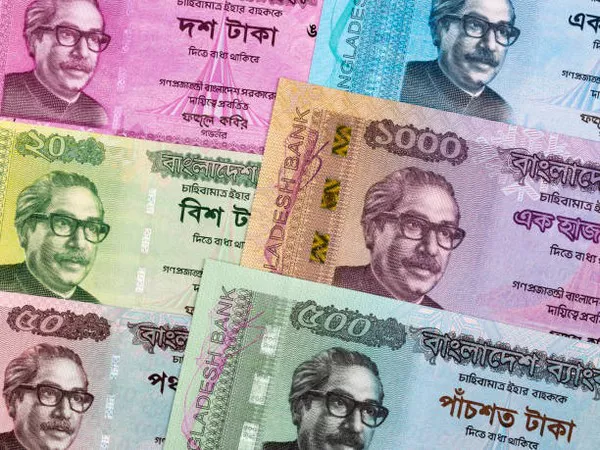In the global economic landscape, the exchange rate of a country’s currency plays a pivotal role in shaping its economic health and stability. Bangladesh, like many other nations, closely monitors its currency’s exchange rate, particularly concerning the US dollar, due to its significance in international trade and investment. Amidst economic fluctuations and global market dynamics, the question arises: Is there any possibility to increase the dollar rate in Bangladesh? This article delves into various factors influencing the exchange rate and explores potential avenues for its augmentation.
Understanding the Exchange Rate Dynamics:
Before delving into the factors influencing the dollar rate in Bangladesh, it’s crucial to understand the fundamentals of exchange rate determination. The exchange rate is influenced by a myriad of factors, including but not limited to:
Economic Indicators: Economic indicators such as inflation rates, GDP growth, employment data, and trade balances profoundly impact a country’s exchange rate. Strong economic performance typically leads to a stronger currency.
Interest Rates: Discrepancies in interest rates between countries affect currency valuation. Higher interest rates in a country attract foreign investment, leading to an appreciation of its currency.
Political Stability: Political stability fosters investor confidence, positively impacting a country’s currency valuation. Conversely, political unrest can lead to currency depreciation.
Market Sentiment: Investor perceptions and market sentiment play a significant role in currency valuation. Positive perceptions about a country’s economic prospects attract investment, strengthening its currency.
Factors Influencing the Dollar Rate in Bangladesh:
Now, let’s analyze the specific factors influencing the dollar rate in Bangladesh and assess the possibility of its increase:
Trade Balance: Bangladesh has traditionally maintained a trade deficit, importing more goods and services than it exports. This trade imbalance exerts downward pressure on the Bangladeshi Taka (BDT) against the US dollar, as the country requires more dollars to pay for its imports.
Remittances: Bangladesh relies heavily on remittances from overseas Bangladeshis, which constitute a significant portion of its foreign exchange reserves. Any fluctuations in remittance inflows can impact the dollar rate in the country. Efforts to increase remittance inflows, such as offering incentives for formal channels and enhancing remittance services, could potentially bolster the dollar rate.
Foreign Direct Investment (FDI): Encouraging FDI inflows is crucial for strengthening the dollar rate in Bangladesh. Creating a conducive business environment, offering incentives for foreign investors, and implementing investor-friendly policies can attract FDI, thereby increasing demand for the Bangladeshi Taka and potentially appreciating its value against the US dollar.
Monetary Policy: The monetary policies implemented by the Bangladesh Bank, the country’s central bank, play a crucial role in influencing the dollar rate. Adjustments in interest rates and interventions in the foreign exchange market by the central bank can impact the value of the Bangladeshi Taka relative to the US dollar.
Global Economic Factors: External factors such as changes in global oil prices, geopolitical tensions, and economic policies of major trading partners, particularly the United States, can influence the dollar rate in Bangladesh. Keeping abreast of global economic developments and adopting appropriate policy responses is essential for mitigating external pressures on the exchange rate.
Possibilities for Increasing the Dollar Rate:
While the dollar rate in Bangladesh is influenced by a multitude of factors, there are several strategies that policymakers can explore to potentially increase its value:
Export Diversification: Diversifying export products and markets can help reduce reliance on a few key export sectors, thereby improving the trade balance and strengthening the Bangladeshi Taka against the US dollar.
Enhanced Foreign Exchange Reserves: Accumulating adequate foreign exchange reserves provides a cushion against external shocks and instills confidence in the currency. Efforts to bolster foreign exchange reserves through increased exports, remittances, and FDI can contribute to a higher dollar rate.
Stable Macroeconomic Environment: Maintaining price stability, fiscal discipline, and a sound macroeconomic environment is imperative for attracting foreign investment and fostering currency stability. Effective fiscal and monetary policies aimed at achieving these objectives can positively impact the dollar rate.
Investor Confidence Building Measures: Implementing reforms to improve governance, transparency, and ease of doing business can enhance investor confidence and attract FDI inflows. Strong investor confidence translates into increased demand for the Bangladeshi Taka, potentially leading to a higher dollar rate.
Infrastructure Development: Investing in infrastructure development and enhancing connectivity can facilitate trade, attract investment, and stimulate economic growth, ultimately contributing to a higher dollar rate through increased export competitiveness and FDI inflows.
SEE ALSO Is Bangladesh Facing a Dollar Crisis?
Conclusion:
The possibility of increasing the dollar rate in Bangladesh hinges on a combination of domestic policies, global economic conditions, and concerted efforts to address structural challenges. While certain factors such as trade imbalances pose challenges to currency appreciation, proactive measures aimed at enhancing export competitiveness, attracting foreign investment, and maintaining macroeconomic stability can create avenues for strengthening the Bangladeshi Taka against the US dollar. By implementing appropriate policies and fostering a conducive economic environment, Bangladesh can navigate the complexities of the global economy and strive towards achieving a higher dollar rate.


